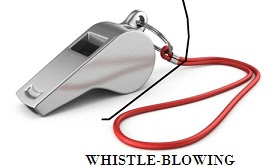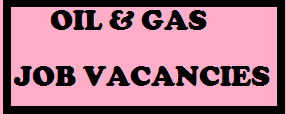The Problems of Whistle-blowing in Nigeria
Table of Contents
whistle-blowing ethics, whistle-blowing policy, whistle blowing act, types of whistle-blowing,
whistle-blowing in the workplace, whistle-blowing policy example. Also people are fond of asking: Why is it important to Whistle-blow? What is the ethics hotline? What is the definition of whistle-blowing? What is a whistle-blower in healthcare?
These are issues to be dealt with in this article. Included are conceptions of whistle-blowing and the Problems of Whistle-blowing in particular.
The Problems of Whistle-blowing in Nigeria – Whistle-blower is any person(s) including employee, management, directors, depositors, service providers, creditors and other stakeholders of an institution who reports any form of unethical behaviour or dishonesty to the appropriate authority.
The Problems of Whistle-blowing in Nigeria
What is the definition of whistleblowing?
Whistle-blower is defined as “a concerned citizen, totally or predominantly motivated by notions of public interest, who initiates of her or his own free will, an open disclosure about significant wrongdoing directly perceived in a particular occupational role, to a person or agency capable of investigating the complaint and facilitating the correction of wrongdoing.“
Another is “the disclosure by organization members (former or current) of illegal, immoral or illegitimate practices under the control of their employers, to persons or organizations that may be able to effect action. Well, Another is the “unauthorized disclosure of information that an employee reasonably believes is evidence of the contravention of any law, rule or regulation, code of practice, or professional statement, or that involves mismanagement, corruption, abuse of authority, or danger to public or worker health and safety.

Consequently, Whistle-blowing is the act of reporting an observed/perceived unethical misconduct of employees, management, directors and other stakeholders of an institution by an employee or other person to appropriate authority. It is an early warning system that enables an organization to find out when something is going wrong in time to take necessary corrective actions.
The Problems of Whistle-blowing in Nigeria
Whistle-blowing, generally, means speaking out in a wasteful, harmful and illegal act to the public. A typical whistle-blower is an employee in a government department or private corporation who makes a formal complaint about misdeeds of the employer.
Incidentally, Whistle –blowing has a strong influence on both the whistle-blowers on the organizations involved. This is why it has become a very hot topic in ethical behaviour. Whistle-blowing is an element of Code of Corporate Governance
- Nigeria whistle-blower website
- whistle-blowing cases in Nigeria
- whistle-blower protection bill 2015
- Nigeria whistle blower portal
- whistle finance gov ng
- whistle-blower portal
- whistle blowers in Nigeria
- whistle-blower Nigeria contact
The Financial Reporting Council of Nigeria (FRCN) recently issued the National Code of Corporate Governance 2016 . The Code is made pursuant to the powers of the FRCN under Sections 50 and 51 of the Financial Reporting Council of Nigeria Act 2011 and has a commencement date of 17 October 2016. The Code is essentially a consolidation and refinement of different sectorial codes on corporate governance and has been issued in three parts: (1) the Code of Corporate Governance for the Private Sector; (2) the Code of Governance for Not-for-Profit entities; and (3) the Code of Governance for the Public Sector.
Whistle-blowing is a very hot topic in ethical behaviour. In this article ,we want to discuss some conceptions of whistle-blowing and some problems associated with it as it concerns the whistle-blowers and the organizations.
The Problems of Whistle-blowing in Nigeria
The problems of whistle-blowing can be divided into two. The problems as it affects the whistle-blower and the employer.
Problems on whistle-blowers:
Firstly, whistle-blowers are often prone to be attacked. The power of the organization is turned against them physically and psychologically, which includes tension between colleagues, spreading of rumours, formal reprimands, transfer to positions with no work or too much work, demotion, dismissal and blacklisting.
ALSO READ: WHISTLE-BLOWING IN NIGERIA
Secondly, they cannot gain trust from others any more.. Usually, whistle-blowers are hard working and conscientious employees. When they see something wrong, they speak out in the expectation that their complaint will be treated seriously. However, in most cases, neither the employers nor the public will trust them in the beginning. Nevertheless, many whistle-blowers believe that someone, somewhere or sometimes will provide justice.
Without such a believe, it would be difficult to persevere several years or even decades. However, there are other means of distrust, they cannot gain trust by their new employers if they go to a new workplace. A good example is when they obtain a new job in another company, they usually get dismissed after their new employers found out about their whistle-blowing. So, they lost their job, their home, their credit rating, their sense of personal safety and their self-esteem as a breadwinner.
Problems for organizations
On the other hand, there are also some problems for organizations caused by whistle-blowing. It can be seen both internally and externally as problematic.
Firstly, the internal problems include bad treatment of staff, favouritism, male domination, lying colleagues, office politics, being required to lie, chasing the poor for debts, repossessions, sexism, carrying out decision democratically reached disagrees with, organisational hypocrisy, contempt of officers for lay officials, corrupt appointments. These problems will effect the organizations in many ways, such as decline in efficiency. They can consume much energy of organizations.
Secondly, the external problems are the main focus of the relationship between the organizations and the customers. When whistle-blowers report some unethical actions of the organizations, it must influence the relationship of the organizations and its stakeholders, who are the individuals, groups and institutions directly affected by an organization’s performance . However, in some cases, the whistle-blowers do not prepare well or even do not have enough evidence to blowing whistles.
The Problems of Whistle-blowing in Nigeria
Generally the problems of Whistle –blowing can also be vied as follows:
It challenges Trust
Whistle-blowing can lead to a breakdown of trust. If trust breaks down between managers and employees, tension and effective working relationships among employees become challenging.
Retaliation
Whistle-blowers may face hostility and resentment from peers and superiors. A whistle-blower may get the cold shoulder or be treated like a “rat” or “snitch.” This culture of retaliation creates a hostile workplace for the whistle-blower and distracts employees from their tasks.
The Problems of Whistle-blowing in Nigeria
Broken Chain of Command
Whistle-blowers may bypass the chain of command because they fear repercussions for going against the company. A continues bypassing of the chain of command in an organisation is that of negating the management and its authority. Company leaders need to create a culture that encourages employees to communicate concerns internally to avoid potential degradation of respect for management.
Issues relating to Benefits of whistle-blowing are:
- positive effects of whistle-blowing
- importance of whistle-blowing in an organisation
- risks and benefits of whistle-blowing
- why is whistle-blowing important to business ethics
- advantages and disadvantages of whistle-blowing in schools
- reasons for whistle-blowing
- benefits of whistle-blowing in nursing
- negative effects of whistle-blowing
- Organizational Repercussions
Whistle-blowing behaviour can bring legal or market-related consequences for the organization. Employees in an organization that do not participate in or have no awareness of inappropriate activities are typically affected if the company faces legal claims or public backlash.It’s important for you to have a sound corporate governance system supported by policies and procedures that comply with the Standards.
It’s important for you to have a sound corporate governance system supported by policies and procedures that comply with the Standards. Such should incorporate a Whistle-blowing system that shows every ones commitment to develop a ‘speak up’ culture that values employees. The tone will be set at the top indicating that illegal behaviour and wrongdoing will not be tolerated.
ALSO READ: Nigeria’s V.P. Osinbajo: Doing business in Nigeria is getting easier

Deacon Anekperechi Nworgu, a seasoned economist who transitioned into a chartered accountant, auditor, tax practitioner, and business consultant, brings with him a wealth of industry expertise spanning over 37 years.



